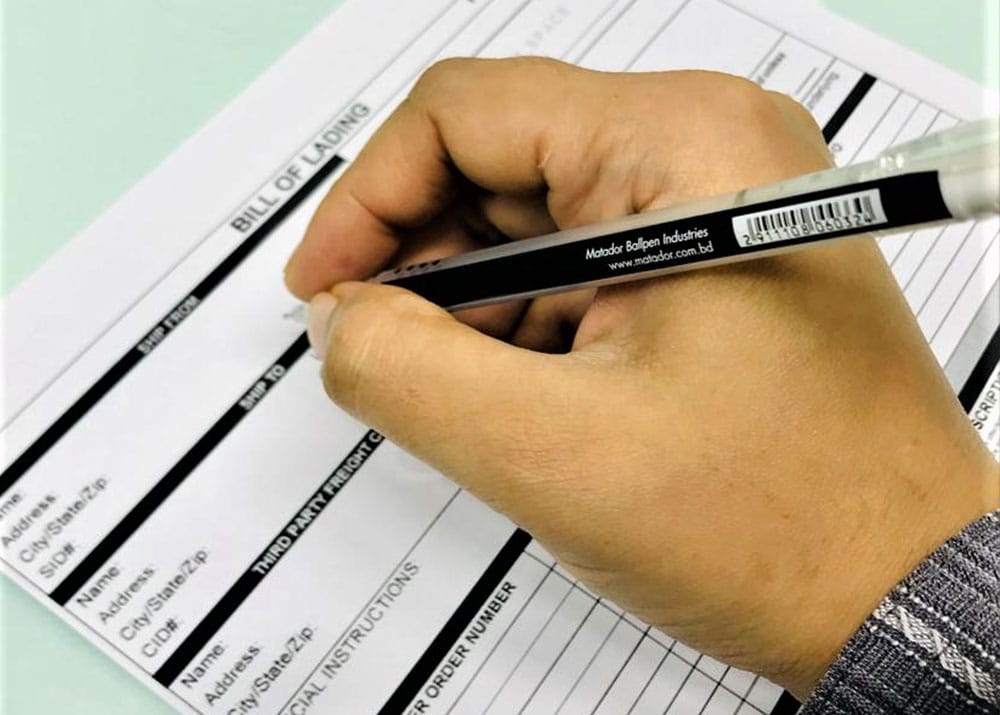In modern international trade and shipping Bill of Lading is the most significant document. The bill of lading is a legally binding agreement that provides the shipper and carrier with all the information that is required for the transportation and proper invoicing of the freight and special directives to the carrier to ensure speedy delivery. The Bill of Lading is a necessary document for goods transported in bulk by ship, aircraft, train or bus. It is a receipt of freight services, a contract between the freight carrier & the shipper and a document of title.
In practice there are several types of bill of lading that serves different purpose. Each kind of bill of lading has some common functions. One of the most unique feature of a bill of lading is it serves as a document of title to the goods. A title of the document shows the entitlement or ownership of the certain goods. A “Title Document” is a document that enables the holder to deal with the goods described in the document as if he were the owner of the document. “Title” is the right of ownership. The right to the use, alteration, disposal i.e. selling and destruction of the goods can be explained as the right to ownership. A formal transfer of the document, such a transfer being an “endorsement” and/or delivery of the document itself, can transfer this “ownership” or “title”. For example, when the goods are in transit from the shipper, while the cargo is at sea, they cannot be physically transported to the customer or to the individual entitled to the goods. The endorsement and issuance of the bill of lading serves as a symbolic delivery of the cargo and is widely known as its character.
During the sea transit, the goods can be bought and sold. This shall pass through the property in the goods as well as the right of ownership upon arrival at the port of delivery. The holder who submits the document and says the goods shall exercise the right to ownership. There will be complications if the applicant does not have the paperwork, although as the document credit system is delayed.
If the loading letter allows the carrier to deliver the goods to the individual’s order, it is a “loading order bill” that is transferable or negotiable. This type of loading letter is knows as title document. If the bill of lading includes only the name of the person to whom the goods are to be delivered and the delivery is not rendered subject to the order of the person concerned, it is a “straight bill of lading” and is not negotiable or transferable. It cannot therefore be a “title document”. As a receipt for cargo, a non-negotiable document may also be proof of the carriage agreement. Ownership is considered to be the best title that generates total interest in the properties or products. Therefore, the general rule is that each owner can sue without hindrance to defend his or her title and can pass ownership. The title of possession, however, is not as powerful as ownership and the locus standi is not generally involved in all possession.
As a title text, BOL also conveys the title to sue. That means the document entitles the holder of the document to sue on his or her own behalf. However, it is concluded that the title was not guaranteed under common law in any case until the intervention of The Carriage of Goods by Sea Act (“COGSA”) in 1992.It also contains the title to transfer the goods by exchanging the goods. However, in due course, the merit transferee is not entitled to a better title than that of the transferor. Finally, it can be said that BOL is a document of constructive ownership of property, locus standi, and transferability as a title document.
With this essential function of the bill of lading, the ownership of the goods can be determined after the goods have been shipped to their destination. The bill agreed on the basis of the delivered goods. The goods may be claimed only from the shipping line by the legal owner. Although the bill of lading seems difficult to understand, it ensures that the shipping process is smooth for the business parties as it ensures that everything happens under the agreed conditions.


